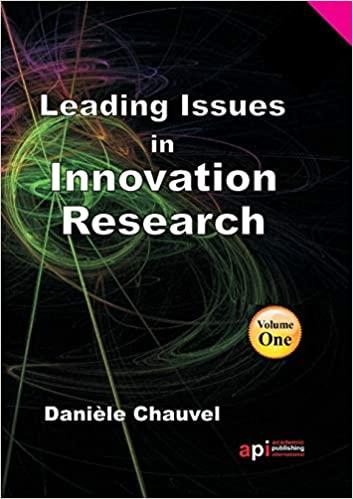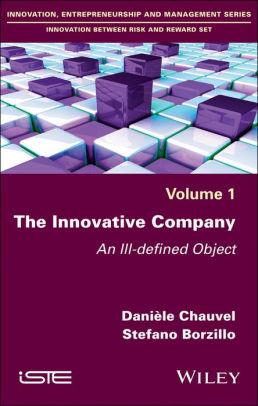Lucidea’s Lens: Knowledge Management Thought Leaders Part 16 – Danièle Chauvel

Stan Garfield

Danièle Chauvel is a retired research professor in knowledge management. She was on the faculty at SKEMA Business School in Sophia Antipolis, France from 2010 to 2016.
Her specialties included knowledge management, innovation, leadership, change management, team management, human and organizational dynamics, social research methodologies, organizational auditing, information management, pedagogical engineering and design, and development and implementation of corporate training and education programs.
Danièle’s research interests included the sociology of knowledge; the role of knowledge in organization development; organizational issues related to knowledge work, creation, and valuation; the evolution of the field of knowledge management; knowledge management as a lever of innovation; innovation management; and the knowledge economy.
Profiles
Books

- Knowledge Horizons: The Present and the Promise of Knowledge Management with Charles Despres

- The Innovative Company: An Ill-defined Object with Stefano Borzillo

Other Content
Articles
Knowledge as both flows and processes
Knowledge as flows refers to knowledge movements across people, organizations, places and time, depicting changes, shifts and applications. It builds on the theory of knowledge flow to propose a multi-dimensional space for visualizing these flows; this space is based on four axes: explicitness (including a binary contrast between tacit and explicit knowledge), the degree of social aggregation, the life cycle of activities associated with flow, and the flow time. Knowledge as processes emphasizes the intertwined ties between knowledge and the knower, as well as the cognitive activities and processes undertaken to work on, organize, manage and create knowledge in the social environment. In other words, the concept goes beyond the whats of knowledge to address its hows and whys.
Social media and the design of an innovative enterprise
Analyzing the implementation of the emerging practice of social media in some companies shows that the required elements for designing an innovative enterprise – fluidity, integrity and energy – are at play. It is all about interaction, knowledge flows and collaboration. And as it has been perceived, this deployment is only possible if there is interconnection among people, technologies, process and governance. This demands a synergistic spiral that allows these components to interact for consistent organizational sense making.
Knowledge Management(s) with Charles Despres
Managers working in this field should realize that KM is more than groupware or an intranet, more than business intelligence, and more than a yellow pages database of employee CVs. It seems clear that knowledge management as a distinct field of work is now and has always been rooted in the individual and his or her behavior. With the formalization of this field, attention has shifted towards the systems and structures that encourage the generation, transfer, application and re-invention of knowledge in a company.
A Thematic Analysis of the Thinking in Knowledge Management with Charles Despres
Knowledge Management writ large would seem to have ambitions that go beyond the management of knowledge, over to the unending potential that arises from the random association of certain humanistic fundamentals: individuals, knowledge, creativity, community, contribution, and certainly others. Individuals, the fundamental reality of knowledge and organization, are “senseless” outside a community which itself is a void absent the individuals; “knowledge” has no meaning without its induction into a social context, hence a contribution of some kind. Taken at this level, the field of Knowledge Management holds itself out to be our latest, best hope for fundamentally reshaping the organizations which we enact and then live in. Hopefully, we will not let this opportunity slip by.
A review of survey research in knowledge management: 1997-2001 with Charles Despres
The developmental path that KM has followed is similar to that traced by the concept of organizational culture. Introduced to business and academia circa 1980, the culture concept first met with disdain, then situated itself on the fringes of respectable thought, gained adherents by demonstrating ‘‘usefulness’’, advanced a research program complete with new problems and new methodologies, and was eventually admitted to the professional and academic mainstream a decade later. Organizational culture is now a respectable topic, so much so that it is required material in that holy of holies, the MBA program.

Stan Garfield
Please enjoy Stan’s blog posts offering advice and insights drawn from many years as a KM practitioner. You may also want to download a free copy of his book, Lucidea’s Lens: Special Librarians & Information Specialists; The Five Cs of KM from Lucidea Press, and its precursor, Proven Practices for Implementing a Knowledge Management Program. And learn about Lucidea’s Presto, SydneyEnterprise, and GeniePlus software with unrivaled KM capabilities that enable successful knowledge curation and sharing.
Never miss another post. Subscribe today!
Similar Posts
Lucidea’s Lens: Knowledge Management Thought Leaders Part 79 – David Garvin
KM expert David Garvin was a proponent of organizational learning to counter unpredictability in market forces and technology advances.
Lucidea’s Lens: Knowledge Management Thought Leaders Part 78 – Carl Frappaolo
KM expert Carl Frappaolo was the creator of Delphi’s Knowledge Management Methodology (KM2)
Lucidea’s Lens: Knowledge Management Thought Leaders Part 77 – Leif Edvinsson
Leif Edvinsson, Professor Emeritus at Lund University in Sweden, specializes in Intellectual Capital Management of Enterprises, Cities, and Nations
Lucidea’s Lens: Knowledge Management Thought Leaders Part 76 – Seth Earley
Seth Earley works in cognitive computing, knowledge engineering, data management systems, taxonomy, ontology, and metadata governance strategies.

Leave a Comment
Comments are reviewed and must adhere to our comments policy.
0 Comments